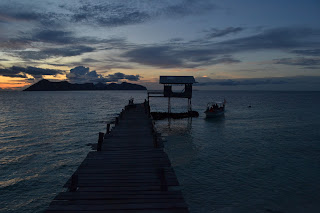In the lead up to New Years, TRACC posted on facebook four Eco resolutions. These were to encourage our followers to think about our planet as we come into 2017. The new year is always a good time to reflect on the year that has been and also on what is to come. Whilst the resolutions are basic ones to do with reducing, reusing, and recycling, they form part of a bigger picture about each of us taking responsibility to take actions in our lifestyles to combat environmental issues. Every act has an impact and if we can reduce our environmental footprint in some way, it will make a difference.
At TRACC We see first hand the impacts of climate change and humans everyday. While Pom Pom is a stunning white sand tropical island, we see plastic bottles wash up on shore by the hundreds, crabs choose bottle tops over limited shells, sea levels creep up each year, corals noticing the temperature changes and bleaching, and on the 29th we had tar wash up on our beach, presumably from some sort of oil spill, or boat disposal. Human impacts are inescapable, and need to be lessened if we want to continue to enjoy our beautiful planet for generations to come.
Coconut crab in a bottle top
So when you are thinking about your resolutions for 2017, don't forget to include ideas about our environment, to make less of an impact, and to encourage good habits in others. Our resolution ideas included stopping using plastic bags, not buying bottled water, investing in a moon cup (for the ladies), and of course- coming to volunteer at TRACC! There are many more small and large changes an individual can take- feel free to comment on the post if you want to share your own Eco resolutions.
On a positive note- this article highlights some environmental wins for 2016. (http://news.nationalgeographic.com/2016/12/2016-environmental-legacy/)
Let's have even more in 2017!
























